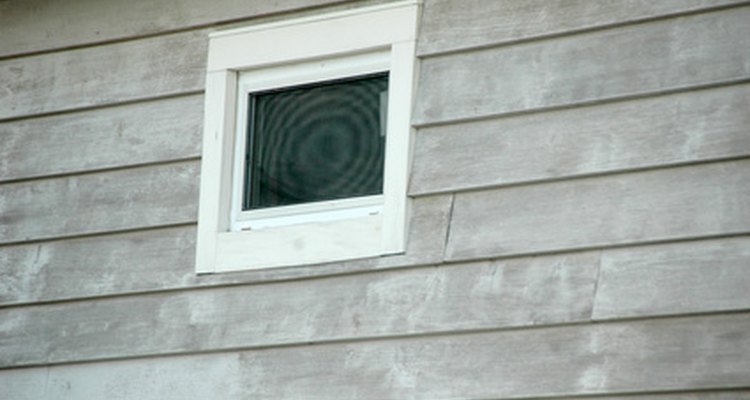
Replacing your windows can improve energy efficiency and give a new feel to an interior space. In Florida, the state building code provides regulations for all exterior glazed surfaces, including windows. If you're replacing old windows, your replacements must comply with current code, possibly necessitating some design changes. To ensure that your new window designs meet legal requirements, consult with local authorities for additional county or citywide ordinances or codes. If you wish to meet the EPA's recommended standards for energy-efficient windows, the Energy Star ratings provide further guidelines.
General Requirements
All window materials, including glass panes and frames, must identify their manufacturers to confirm that their construction complies with Florida Building Code. The identification label may be sand-blasted, ceramically fired, laser-etched, embossed or otherwise permanently indicated. All panes must fit within their frames securely enough that they cannot deflect more than 1/175 of the total glass edge length, or 3/4 inch, whichever is less. Any louvered windows, or windows that consist of individual glass slats, must have thicknesses of 3/16 inch or greater. Individual louvers cannot measure more than 48 inches across. All exposed glass edges must be smooth.
Safety Glazing
The Florida Building Code imposes additional requirements on windows placed in "hazardous" locations. Hazardous windows include glass set into swinging doors, fixed or sliding door panels, storm doors, unframed swinging doors or interior doors and enclosures for baths, showers, saunas and other bathing facilities. Any glass surfaces within 24 inches of a closed door's vertical edge are also considered hazardous. Any such windows must meet special requirements for "safety glazing." Manufacturers must identify them as such by the same permanent engraving methods as permissible for manufacturer identification. Safety-glazed windows must withstand set impact loads, determined by their type (whether swinging doors, panels or sliding doors) and their size (whether less than or greater than 9 square feet).
Energy Star Requirements
When replacing a window, you may qualify for tax credits and enjoy reduced heating and cooling costs by complying with the Energy Star rating system's requirements. For windows installed in southern climates, including all of Florida, the Energy Star qualification criteria demand that windows have a U-factor no greater than .60. The U-factor demonstrates a window's effectiveness at keeping heat from escaping, with smaller numbers indicating greater efficiency. It is measured in British thermal units divided by hours multiplied by square feet. Windows must also have a solar heat gain coefficient (SHGC) of 0.27 or less. The SHGC indicates the degree to which the window permits heat to enter; a lower value indicates greater resistance of heat energy transfer.
Related Articles

How Wide Are Double Hung Windows?

New Salon Design Regulations in ...

Uses of Thermal Insulators

ADA Standards for Accessible Design for ...

Types of Hotel Rooms

How to Get Rental Assistance for Seniors

How to Replace Parts for Hedstrom Swing ...

What Is the Best Cookware for Electric ...

The Disadvantages of Passive Solar ...

Glass Scalp Rake for Hair Growth

How to Dress Your JROTC Uniform

How to Replace Fossil Watch Glass

Definition of a Cantilevered Bay Window

What Is Magnalite?

How to Replace a Nike Triax 50 Battery
How to Lower Cooking Times & ...

Directions on Changing Bolle Lenses

How to Calibrate the Altimeter on a ...

Can Ceramic Cookware Be Used on ...

How to Cover Up Unused Exterior Windows
References
Writer Bio
Danielle Hill has been writing, editing and translating since 2005. She has contributed to "Globe Pequot" Barcelona travel guide, "Gulfshore Business Magazine," "Connecting Lines: New Poetry from Mexico" and "The Barcelona Review." She has trained in neuro-linguistic programming and holds a Bachelor of Arts in comparative literature and literary translation from Brown University.
Photo Credits
window image by Cathy Kovarik from Fotolia.com